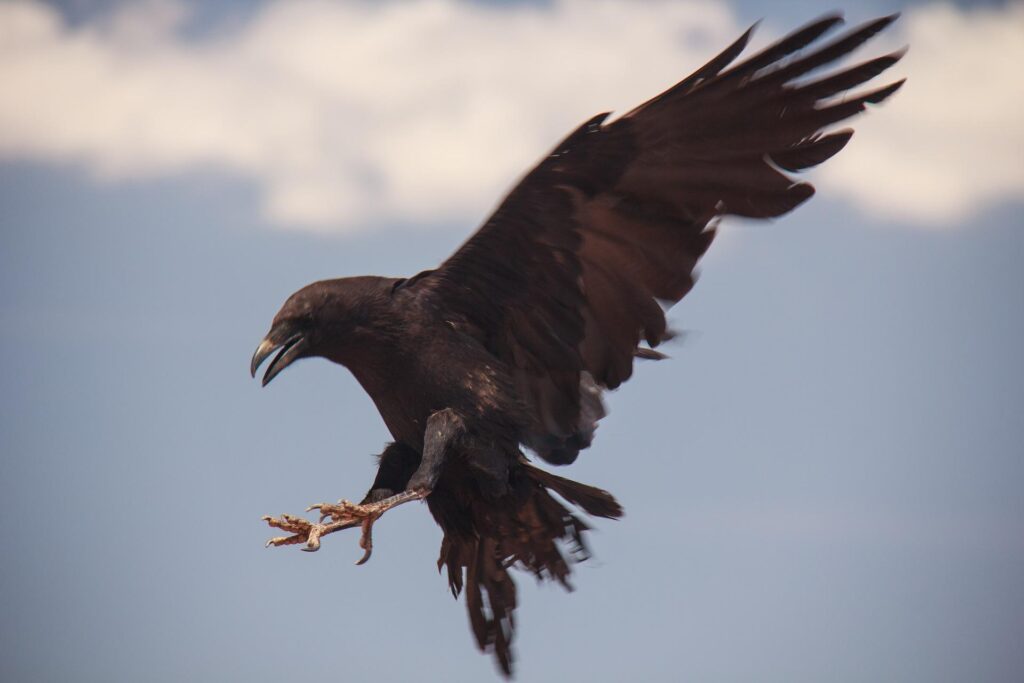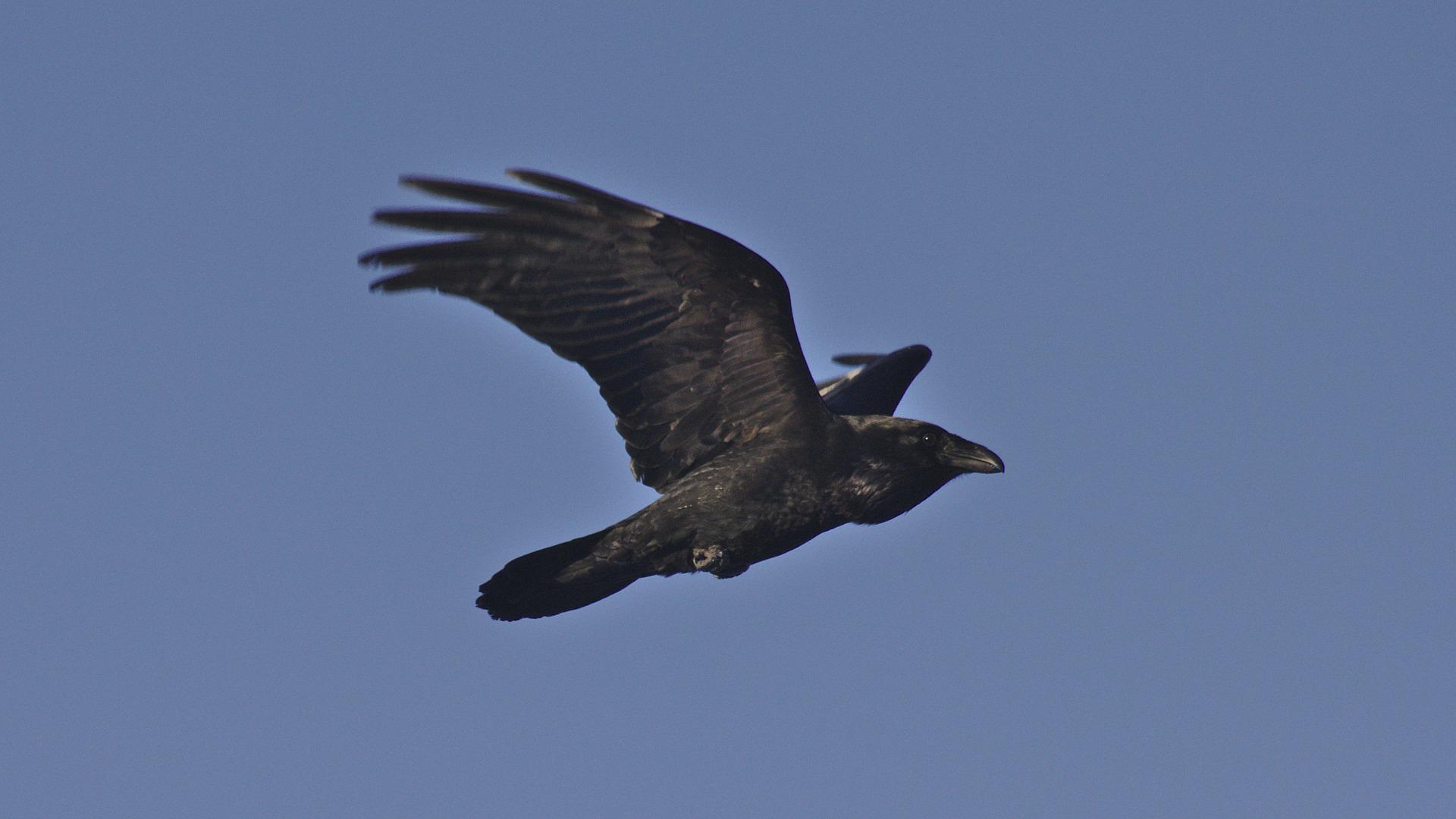A lot of people disagree about whether ravens can be used in falconry. Some people say they make great companions because they are so smart. In contrast, others argue that their temperament makes them difficult to handle.
It is possible that ravens can be used in falconry. Still, you would have to have experience. The Vikings used this method successfully. Some current master falconers (a very tiny amount) can use ravens. However, these birds are not for beginners. Many years of experience are required before attempting to use a raven.

Using ravens in falconry is a touchy subject as it sparks some debates, so we would like you to make your own call if this is something you want to pursue by providing you with the content below so you can rightly do so.
Are ravens as fast as other birds used in falconry?
The speed of a bird of prey is essential in order to be successful when hunting. Falcons are among the birds of prey that are considered very fast and can easily catch their prey. However, ravens are also birds of prey, and while they may not be as fast as other raptors, they are still capable of capturing small animals. In fact, ravens have been known to kill animals that are much larger than themselves, such as deer. This makes them an effective tool for falconers when hunting.
What is a raven’s top speed?
Ravens can reach speeds of up to 48 mph or 77.2 kilometres per hour. Their top speeds are generally achieved during dives. Ravens are excellent flyers and are known for their aerial acrobatics. They are also very good at gliding and can cover large distances without flapping their wings.
How intelligent are ravens compared to other birds of prey?
Ravens are quite intelligent and are considered to be among the most intelligent birds in the world. Their intelligence allows them to be used in falconry, where they help to hunt small prey. Falcons are typically larger and faster than ravens, so the raven’s intelligence is vital in order to keep up with the falcon.
The Ravens’ abilities have been put to use by humans for centuries, and their popularity as hunting partners continues today. In addition to being intelligent, ravens are also known for their striking appearance. Their black feathers and beady eyes give them a mysterious look, and their raucous calls add to their allure. Ravens are fascinating creatures, and their intelligence makes them even more so.
Do you need a special license to keep ravens?
If you’re thinking about keeping a raven as a pet, you’ll need to do some research first. In most cases, you’ll need a special license to own a raven as a pet. There are some people who keep them illegally, but this is not advised. Make sure you do thorough research about the requirements and if it’s even allowed in your country. Ravens are intelligent creatures and can be very rewarding pets. However, they can also be very challenging. A raven may not be the right pet for you if you’re not prepared to put in the time and effort.

Can a raven be trained?
Training a raven for falconry is a long and challenging process, but it is well worth the effort. Ravens are intelligent, powerful birds that make great hunting partners if the art is perfected with them. Up to three years are needed to fully train a raven, but the rewards are great. Ravens are loyal birds and will bond with their trainer if given a chance. They are also knowledgeable and can be trained to do tricks and behaviours. With proper training, a raven can become a valuable hunting partner and even help to protect its trainer from danger. While training a raven takes time and patience, the results are well worth the effort.
What sorts of prey do ravens like?
Although they are most commonly associated with dark forests and haunted castles, ravens are found in a wide variety of habitats, including mountains, grasslands and even cities. Although they are primarily vegetarian, ravens are opportunistic predators and will eat just about anything they can find, including small mammals, birds, reptiles, insects and carrion. In fact, their diet is so diverse that ravens have been known to steal food from other animals, including humans. This behaviour has earned them a reputation as pests, but it also makes them fascinating to watch. Ravens are intelligent birds, and their adaptability is one of their most impressive traits.
Are ravens good for beginner falconers?
Ravens are not typically recommended for beginner falconers. They are brilliant birds and can be challenging to train. However, they also require a lot of food and can be pretty noisy. Their intelligence allows them to quickly learn new tasks, but their independent nature means that they may not always follow commands. In addition, ravens require a lot of food to maintain their energy levels, and their loud calls can be disruptive. Due to this, it is generally recommended that beginners start with more straightforward birds such as kestrels or sparrowhawks. With time and patience, however, Ravens can make excellent hunting partners.
The pros and cons of using ravens in falconry
Ravens are not typically used in falconry because they are considered too challenging to train. However, some people have had success training ravens to hunt with raptors. The pros of using ravens in falconry include their intelligence, strength, and size. Ravens can be effective at taking down larger prey than traditional falconry birds. The cons of using ravens in falconry include their tendency to be independent and challenging to train, not to mention they can fly away indefinitely.

Training ravens can be very challenging due to their intelligence and problem-solving skills. However, ravens can be a powerful tool in the hunt for those experienced falconers who are up for the challenge. Ravens are more significant than most traditional falconry birds and can take down prey that is much bigger than themselves. While there are many pros to using ravens in falconry, there are also some significant cons, namely their tendency to fly away indefinitely and be challenging to train. Ultimately, it is up to each falconer to decide if training a raven is the right decision for them.

